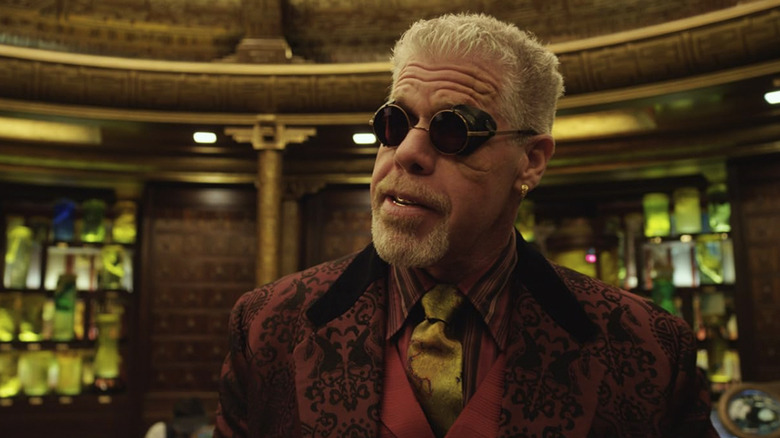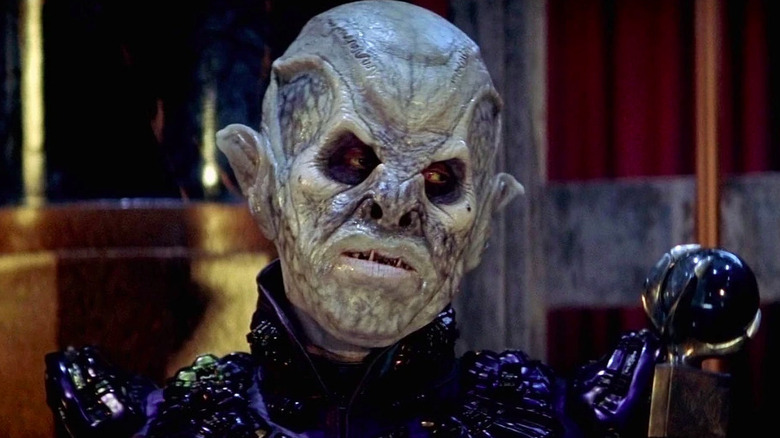
Warner Bros
Prior to the Kelvin universe created by J.J. Abrams in 2009, the "Star Trek" movies were said to operate on an odds-bad, evens-good schedule. Any movie with an odd number in its title (including "Star Trek: The Motion Picture") would invariably disappoint, while those with an even number would be worthy of the franchise's good name. Aside from being way too hard on the cinematic "The Motion Picture" (it's a little draggy, but a very good sci-fi epic overall), this rule of thumb generally held true through ten films.
Generally.
In 2002, armed with a screenplay from "Gladiator" co-writer John Logan and a fiery villain played by pre-stardom Tom Hardy, "Star Trek: Nemesis" appeared poised, as the tenth film in the franchise, to course correct after the silly, weightless, and cheap-looking "Star Trek: Insurrection." It was to be a "Star Trek" film of consequence, with real danger posed to its core characters and a big adventure built for the big screen. Technically, it was all of these things. It's just that, in the view of most fans and critics (and Riker himself, Jonathan Frakes), it was executed like it had an odd number next to its title.
Not everyone was down on "Star Trek: Nemesis" at the time. I reviewed it for Ain't It Cool News coming out of the premiere, and while I was wined and dined at the afterparty by getting to meet Buzz Aldrin and most of the cast, my opinion of the film prior to these blessed-for-me events was that it was a good "Star Trek" movie. The weakest even-numbered Enterprise excursion, perhaps (a step down from "Star Trek: First Contact"), but satisfying enough.
Has time been kind to "Star Trek: Nemesis?" That's up to you, but let's consult the man who played the Reman Viceroy. What does Ron Perlman think about the film nowadays?
Ron Perlman remains mixed on Star Trek: Nemesis

Paramount
In a 2010 interview with StarTrek.com, Perlman was asked to weigh in on the film. Eight years in the rearview, the man who was Hellboy and the Beast was blunt about how he felt about his time in the Trek universe. According to Perlman:
"I thought it was uneven. I thought it had some great moments to it, but not enough. I didn't think it added up, at the end of the day, to being one of the high points in the Star Trek [franchise]."
In retrospect, the movie might've had a bit more oomph if it was willing to leave Data's future as more of an open question as "Star Trek II: The Wrath of Khan" did with Spock. Instead, we know his memories are preserved, which means his return in some form or function was in the offing — at least, it would've been, had the $60 million production grossed more than $67.3 million globally. The $43 million domestic take remains the lowest by far of the franchise, so it's not a surprise that Paramount mothballed the Enterprise for seven years while they figured out how to reboot.
As for the Reman Viceroy, he appears to be lost in the deep void of space.









 English (US) ·
English (US) ·